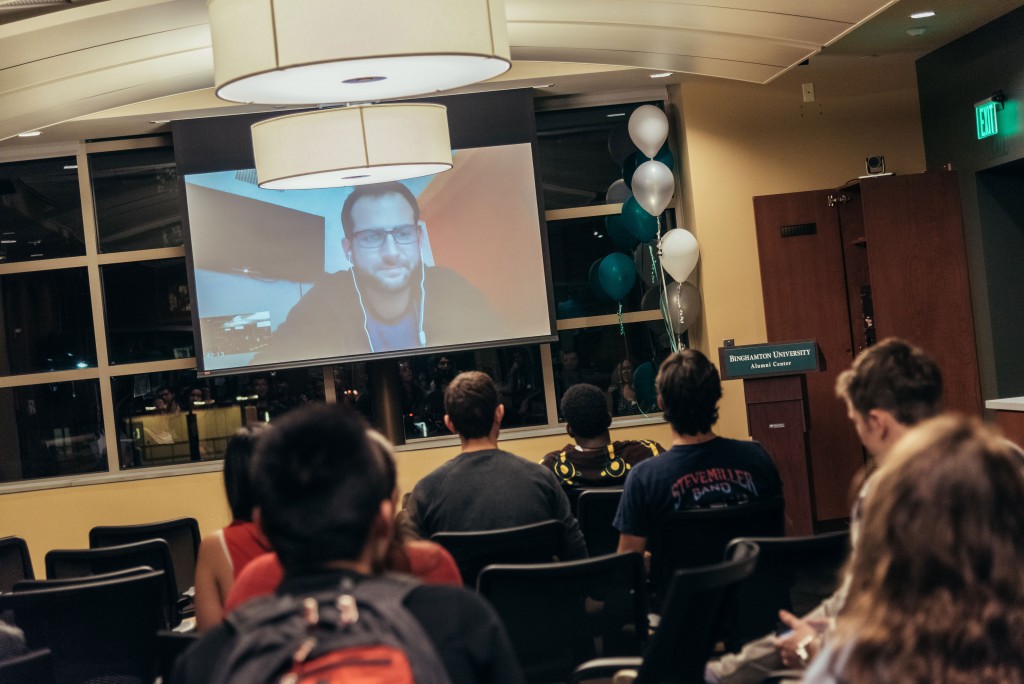
As gun violence is becoming an increasingly widespread issue, one Binghamton University alumnus is looking for a modern-day solution.
Ian Johnstone is the co-founder and CEO of Gun by Gun, a non-profit organization that buys back guns and helps remove illegal weapons from communities. He spoke with students via Skype on Thursday night as part of the “Cool Connections, Hot Alumni” series, hosted by the Alumni Center and Fleishman Center for Career and Professional Development.
With Gun by Gun, people can anonymously turn in guns to local authorities, with no questions asked, in exchange for cash or gift cards. If the guns are stolen, they are returned to their rightful owners; if not, they are destroyed. Since its inception three years ago, the program has removed 800 guns from the streets, has had campaigns in four cities and raised over $90,000 through crowdfunding.
“In a market-based, almost libertarian way, it gives people the opportunity to vote with their dollars and say, ‘I want fewer guns around me,’” Johnstone said.
Johnstone, who lost his father to gun violence when he was 10 years old, decided a market-based solution to gun violence would be most effective. According to him, crowdfunding is a sustainable source of capital and provides individuals with cash, which is a tangible incentive to get guns off the street.
Johnstone graduated in 2004 with a B.A. in political science and received a Master’s degree in business administration through the fast-track program in marketing and organization leadership in 2005. While in school, he spent his summer and winter breaks working on political campaigns and interning on Capitol Hill.
However, through a post-graduate fellowship that allowed him to experience working in both for-profit and non-profit jobs, Johnstone said he learned that he preferred working in the private sector.
“I saw the private sector as providing an outlet to create change,” he said. “And that resonated with me.”
Johnstone advised students interested in social entrepreneurship to get experience. He said people often get stuck in the idea phase, but actually putting them to the test is how to learn.
“The ideas are kind of a dime a dozen,” Johnstone said. “Knowing what it will actually take to get the company off the ground is what’s really valuable. And I think the best way to do that is to get experience at another early-stage start-up where you can learn the ropes and see what it’s like from the inside.”
According to Courtney Huff, assistant director of student and young alumni engagement, Johnstone was recommended to speak by a colleague in part for his broad appeal to students.
“I sort of chuckled at the end. He said ‘fail often and fail quickly,’ and I think that’s not a common piece of advice that students get,” she said. “But I think it’s a big part of growing and learning and experiencing new things.”
Matt Carrigan, a senior majoring in English, said that Johnstone had good advice because of his unique path.
“I thought that it was a really interesting path that he had, going from consulting to start-ups while still pursuing a social agenda that whole time,” he said. “It seemed like he definitely knew that niche very well and had a lot to say about it.”


